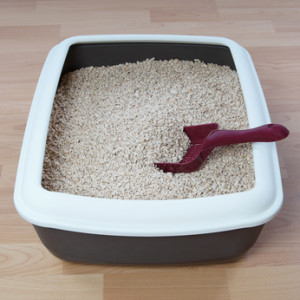Bacteria Proven to Help Anxiety in Pets
Did you know that 80% of pets’ immune systems reside in their digestive system? New research shows that maintaining a healthy gastrointestinal tract not only supports good digestion and a strong immune system, but also reduces anxiety. This finding is significant since so many of our pets may show signs of anxiety from time to time. Some pets are anxious all of the time or quite frequently. Anxiety may be demonstrated in our cats via hiding, vocalizing, refusing to eat well and avoiding the litter box. Anxiety in dogs may be demonstrated by hiding, trembling, excessive barking, chewing, destructive behavior, pacing, circling, and loss of appetite. Living with an anxious pet can also cause feelings of nervousness and worry by the family members and disrupt the household. Physical measurements of anxiety include an increased heart rate and increased level of cortisol, a stress hormone.
Probiotics are the friendly bacteria in the gut, necessary for digestion of food but also to discourage infectious or pathogenic bacteria from taking over. Pets with a depleted bacterial flora (population of digestive bacteria) are more likely to develop other diseases. In other words, their immune systems become weakened, putting them at an increased risk of illness.
The amount of good digestive bacteria in our pets’ gastrointestinal tracts directly affects their mood. This means that their physical well-being and emotional well-being are closely linked to the health of their digestive systems. In a study of anxious Labrador Retrievers, 90 percent of those receiving a probiotic supplement showed a reduction in anxious behavior. Following the administration of the probiotic for several weeks, their heart rates and blood cortisol levels reduced. In a similar study, probiotics were shown to be as effective as antibiotics in treating stress colitis (diarrhea due to stress) in shelter dogs.
To support your pet’s immune system and gastrointestinal tract, offer your pet a high quality pet probiotic. Pets’ digestive flora, or bacterial population, is different from ours. So, it is best to seek a veterinary or pet product that is concentrated, potent and contains a variety of live bacteria. The bacteria in the supplement must be viable (alive) and able to reproduce to be beneficial. A good quality product will be formulated to withstand the highly acidic stomach. Thus, the bacteria reach the intestines alive where they are most useful.
Dr. Frezzo’s patients are recommended to consume a high quality species-specific food ( cat food for cats, dog food for dogs, people food for people), a probiotic and an omega-3 supplement for optimal daily nutrition. Additionally, her patients benefit from medical grade essential oils to further combat anxiety and support the immune system.
Sources:
- International Journal of Applied Research in Veterinary Medicine, Vol. 10, No. 3, 2012
- Probiotic Compared to Drug Therapy for Treatment of Acute Stress Colitis in an Adult Canine Shelter (pgs 57-58)were
- Proceedings. Nestle Purina Companion Animal Nutrition Summit, 2016:87-93
Mia Frezzo, DVM
Animal Hospital of Hasbrouck Heights
doTERRA member of the International Veterinary Advisory Board








Recent Comments